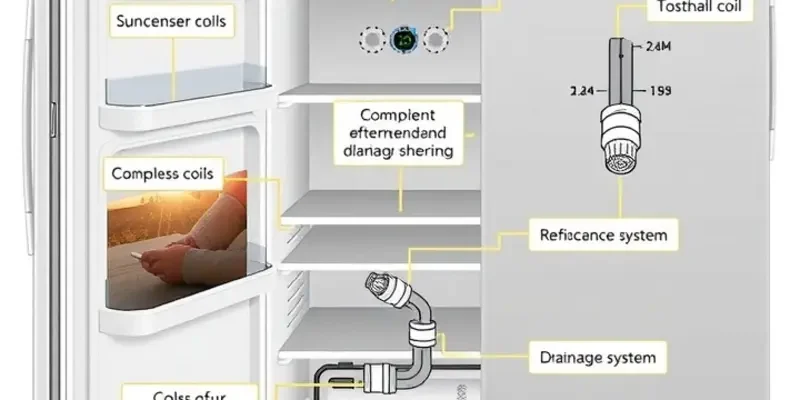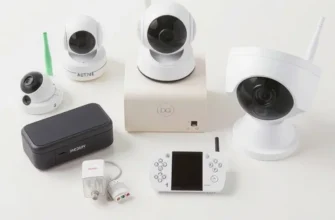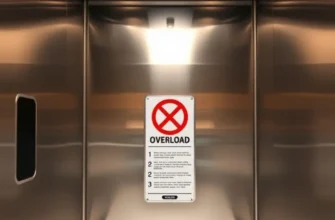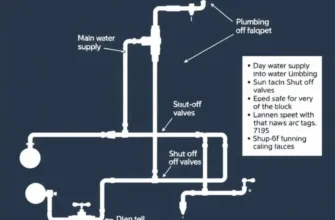Refrigerators serve as the backbone of our kitchens, especially in rental apartments where space and appliance quality can often vary. Proper maintenance not only extends the life of your refrigerator but ensures food safety—an essential aspect for all renters. From checking seals and cleaning coils to addressing minor repairs, understanding how to care for your fridge can prevent costly troubles down the line. Furthermore, it enhances the overall comfort of your living space, providing peace of mind as you go about your daily life. This guide will delve into practical and manageable strategies for apartment refrigerator maintenance that prioritize safety and security, allowing you to enjoy your rented home without the added stress of appliance woes. Let’s explore the key steps you can take to ensure your refrigerator remains a reliable part of your kitchen setup.
Understanding Your Refrigerator: Parts and Functions
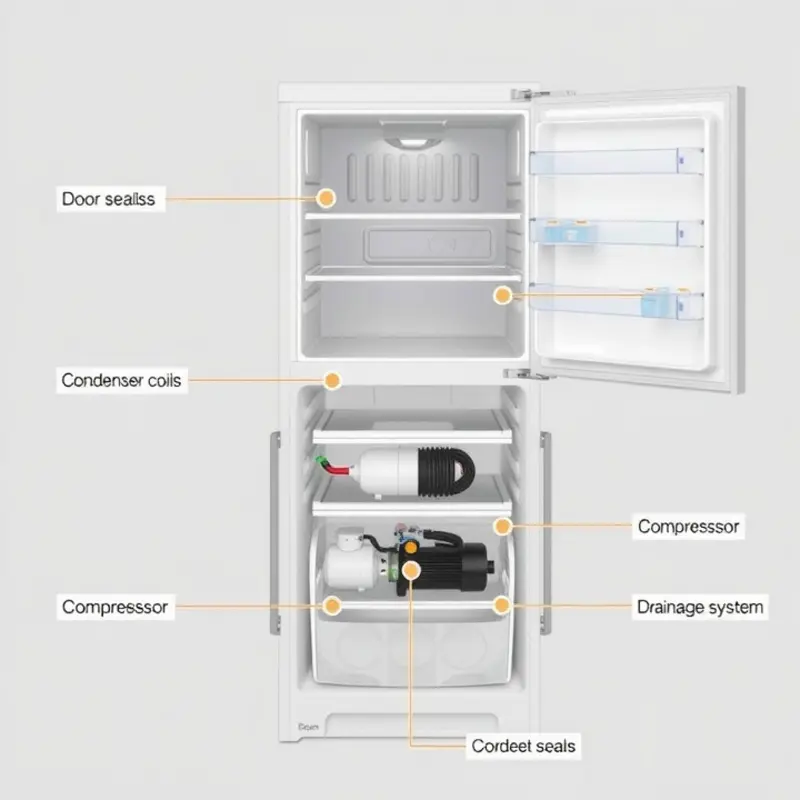
Getting acquainted with your apartment refrigerator can save you time and keep your food safe. Let’s delve into the core components that make this appliance essential for every home.
Door Seals
Often overlooked, door seals play a crucial role in maintaining your refrigerator’s efficiency. These rubber gaskets ensure that cold air remains inside, preventing energy waste and food spoilage. Regularly inspect seals for cracks or wear. A simple test involves closing the door on a piece of paper; if it slips out easily, consider replacing the seal to avoid energy loss.
Condenser Coils
These coils, typically located at the back or bottom of your fridge, help cool and condense the refrigerant. When clogged with dust, they force your fridge to work harder, potentially shortening its lifespan. Cleaning the coils every six months is advisable. Unplug the appliance and use a coil brush or vacuum to remove dust. This maintenance step can improve efficiency, saving on electricity bills.
Cooling Fan and Compressor
The fan and compressor ensure that heat is efficiently transferred outside, keeping the interior chilled. A malfunction can lead to inefficient cooling or a complete breakdown. Listen for unusual noises, which may signal a problem. Ensure the refrigerator is on a level surface to prevent undue stress on these components. If issues persist, professional inspection might be necessary to avoid further damage.
Drainage System
Most modern fridges include a drainage system to remove condensation. A blocked drain can lead to water pooling, risking bacterial growth. Check and clean the drain hole regularly using warm water and a small brush. This prevents clogs and maintains a fresh-smelling appliance. Addressing drainage issues quickly is vital for preventing unpleasant odors and potential leaks that could damage apartment floors.
Thermostat and Temperature Control
These allow you to adjust the internal temperature depending on the refrigerator’s load. Ensure these settings align with food safety guidelines, usually between 37°F and 40°F (3°C to 4°C) for the refrigerator and 0°F (-18°C) for the freezer. Regularly check the thermostat for accuracy and recalibrate if necessary. Keeping an appliance thermometer inside can help monitor temperatures continuously.
For more on maintaining a safe living environment, consider learning about safe apartment laundry habits to complement your home care routine.
Understanding and maintaining your refrigerator’s parts can enhance its performance and longevity, ensuring that your food stays fresh and safe for consumption.
Simple Maintenance Tasks for Optimal Performance
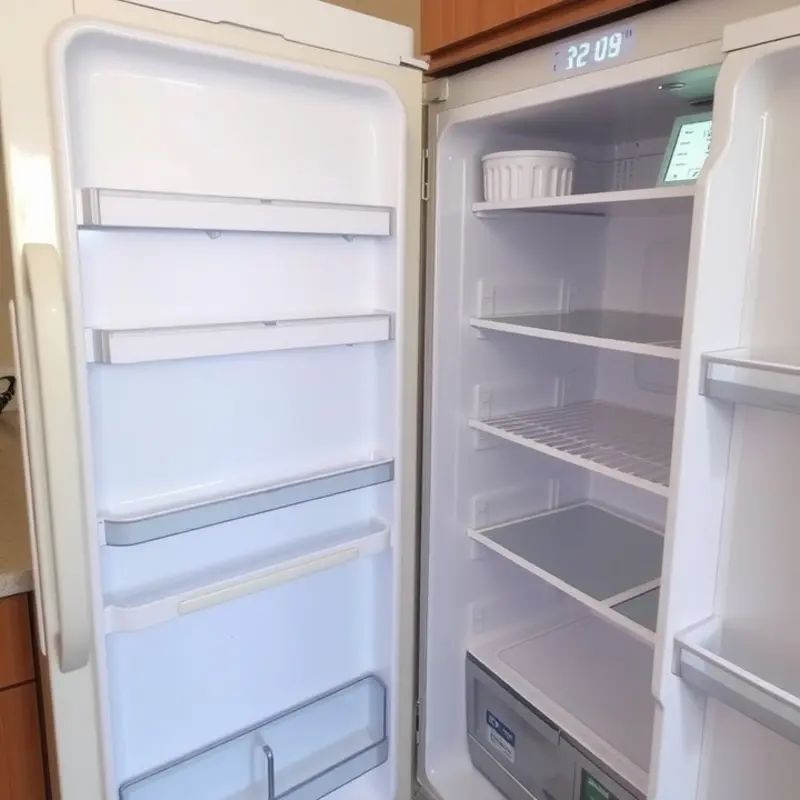
Keeping your apartment refrigerator in top-notch condition is essential for ensuring your food stays fresh and safe. As a renter, you’re often dealing with an appliance you didn’t choose, so regular maintenance becomes key to preventing any hitches in your kitchen routine. Here’s a straightforward checklist to help your refrigerator run efficiently.
-
Regular Interior Cleaning:
A clean refrigerator runs more efficiently. To begin, schedule a monthly cleaning session. Remove all items and shelves, then wipe down the interiors with your favorite apartment-friendly DIY cleaning product. Avoid harsh chemicals to prevent any lingering odors. Pay special attention to corners and door compartments. -
Temperature Checks and Adjustments:
Checking and adjusting the refrigerator temperature is vital. Ideally, the temperature should be between 37°F and 40°F, while the freezer should be at 0°F. Use a fridge thermometer for accuracy. Adjust settings as needed, especially when seasons change and external temperatures fluctuate. -
Seal Examination:
Door seals (gaskets) are crucial for maintaining the internal temperature. To check them, close a dollar bill in the door and try to pull it out. If it slides out easily, the seal may need cleaning or replacement. Worn-out seals allow cool air to escape, pushing up your energy usage. Regularly wiping seals with warm, soapy water ensures they remain effective. -
Condenser Coil Cleaning:
If accessible, clean the condenser coils every six months. Dust and debris can accumulate, causing the fridge to work harder and use more energy. Unplug the refrigerator and gently vacuum the coils or use a brush. This task might seem intimidating, but it can significantly extend the appliance’s life. -
Defrosting the Freezer:
If your freezer is not frost-free, periodic defrosting is necessary. Too much frost buildup can reduce the efficiency and space available for storage. Plan to defrost when the ice buildup is about a quarter-inch thick for optimal performance. -
Regularly Check for Unusual Noises:
Listen for any strange noises which might indicate a problem. The refrigerator should have a consistent hum. Loud clanging, banging, or hissing can suggest an issue needing professional attention to prevent bigger issues down the line.
With these tasks integrated into your schedule, you can maintain a refrigerator that maximizes efficiency and minimizes hassle. Regular attention to this essential kitchen appliance ensures your groceries stay preserved. For further tips on making your apartment lifestyle run smoother, check out these apartment organization baskets for optimizing refrigerated storage and more.
Final words
Regular maintenance of your apartment refrigerator is essential not just for preserving your food, but for ensuring a safe and comfortable living environment. By familiarizing yourself with your refrigerator’s components and adopting easy maintenance tasks into your routine, you not only extend the lifespan of your appliance but also enhance your overall kitchen experience. Prioritize these practical steps to maintain a secure, reliable, and hassle-free refrigerator that complements your rented home. Remember, a little attention today can save you from bigger issues tomorrow!

